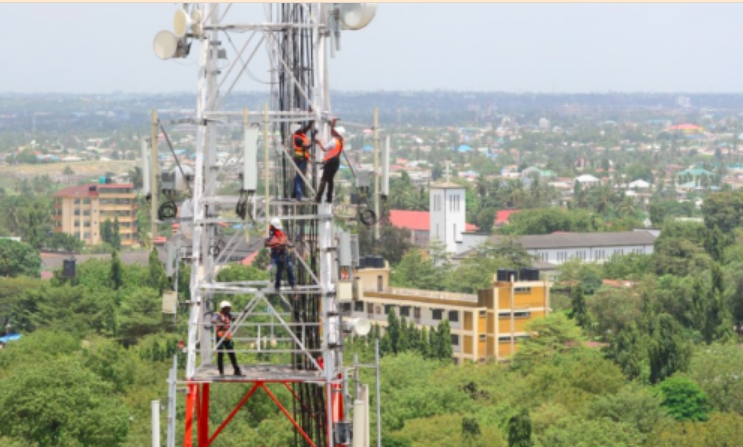Maintenance work on a telecom tower in Ethiopia. © Helios Towers / 2020. Africa’s digital economy will surely remember 2020 as some kind of huge pop quiz which received the following feedback: “Solid achievements to build on.”
COVID-19 has indeed led to millions of citizens using a variety of mobile services ranging from meal delivery to mobile payment to video conferencing. These new uses have put pressure on broadband networks, but they have held up.
READ MORE How Facebook spun its web across African internet
This is at least the case for urban areas. After all, the physiognomy of the African Internet resembles that of the continent’s major metropolises. It is uneven and fluctuates between solid, state-of-the-art constructions and rudimentary and insufficient equipment. 1 – Improving the existing network
“The last five years have seen the expansion of numerous submarine o r land cables on the continent, accelerating the broadband adoption curves which now hover around 30 to 40%. Despite this progress, the year 2020 has revealed the failure of these networks in meeting people’s needs,” says Guy Zibi, founder of the consulting firm Xalam Analytics and an expert in technology markets.
According to Zibi, before covering its entire territory, Africa must first improve its existing network by focusing on the “useful connection.” A notion popularised by the Alliance for Affordable Internet, which believes that effective connectivity is connectivity above 10 megabits.
READ MORE Unlocking Africa’s digital future
In other words, operators now need to ensure that in areas with the best coverage, throughput can easily support sophisticated, data-intensive applications such as Youtube, Zoom or cloud storage.
He states that this objective requires accelerating the deployment of 4G and residential and office fibre optics (FTTH). In Africa, “the rate of adoption of this type of connectivity was estimated at around 15% in 2020,” Zibi says. By way of comparison, in Europe, broadband penetration rates are at around 75-80%, 4G and fibre combined. 2 – Democratising broadband connection
What about unconnected populations? In 2020, an international consortium led by Facebook installed 2Africa, the longest underwater fibre optic cable on the continent. In Guinea, the national backbone has begun to be commercialised and may one day be connected to Orange’s West African network, known as Djoliba.
As it explores the African market, network infrastructure operator Liquid Telecom has completed its project to link South Africa and Cairo, cabling much of East Africa in the […]
